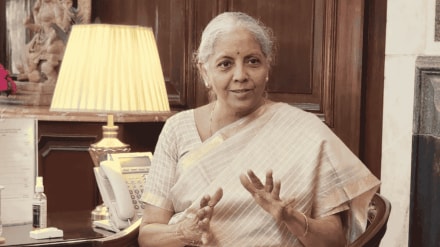The government is determined not only to adopt artificial intelligence (AI) technologies but also to ensure their responsible application across various sectors, finance minister Nirmala Sitharaman said on Monday, emphasising the need for regulations that responsibly foster technology innovation in AI.
“We do not want regulations that literally wipe out technology itself. We want regulations because we want a responsible application,” Sitharaman said, releasing the report ‘AI for Viksit Bharat: The Opportunity for Accelerated Economic Growth’.
Balancing innovation with safeguards
She said AI can play a vital role in finding solutions to improve our existing urban areas and to plan new urban centres.
“We need to understand that AI is capable of providing in-situ solutions, allowing people to remain where they are, while delivering the solutions they have been waiting for decades,” the minister said.
AI is not static. It is rapidly progressing, real-time and dynamic. “Therefore, all of us will have to be conscious that we don’t sit back on ethics,” she said.
The challenge is not just in jobs, but also in a way in which these can be misused which can have repercussions for the society, she said.
“We need to be clear that regulation has to run the race equally as much as the technology is running it. If the technology is on a sprint, the regulation has to be on the sprint, too.”
According to the report, projections show that while AI will create many new roles, it will also displace many existing jobs, particularly in clerical, routine, and low-skill segments.
Techno-legal approach to AI safety
‘India is a country which can understand the implication of a good which comes in our way, although a good is never unmitigated, a good is never without riders, a good is never – on its own – good, it is for us all to use in such a way that it is for the common good,” she said.
Speaking at the event, information technology minister Ashwini Vaishnaw said, India has taken a techno-legal approach and its AI safety is a virtual institute.
“Our growth is inclusive, robust and driven by technology. No country can think of being a developed country until and unless it has good mastery or control or confidence about a few technologies like telecom technology, semiconductors, electric vehicles, biotech, some of the most complex engines, quantum, rare earth, and a few more,” he said.
